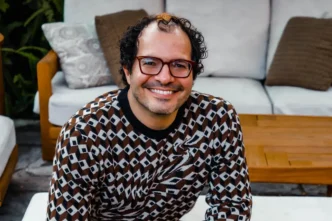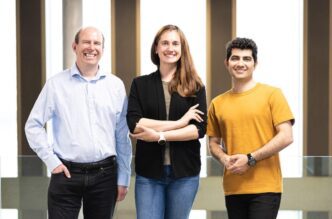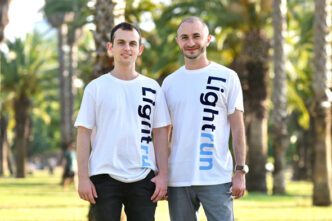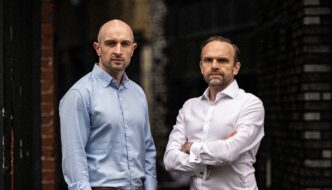The industrial sector, often overlooked for its climate contributions, is now stepping up to tackle emissions, thanks in part to companies like Electra. The Boulder-based startup recently closed a $186 million Series B funding round, bringing its total investment to $214 million. This milestone positions Electra as a key player in the race to decarbonize iron and steel production, one of the most carbon-intensive industries globally.
The Series B round was co-led by Capricorn Investment Group and Singapore sovereign fund Temasek Holdings, both known for their strategic investments in climate technologies. Electra also attracted both returning and new investors, signaling strong confidence in the company’s potential. Notable repeat backers include Breakthrough Energy Ventures, Lowercarbon Capital, Earth Venture Capital, and Builders Vision. New partners, including global giants Rio Tinto, Roy Hill, and BHP Ventures, have added supply chain strength, while leading steelmakers such as Nucor and Yamato Kogyo, along with materials companies like Toyota Tsusho Corporation and Interfer Edelstahl Group, complete a diverse group of stakeholders that span the entire value chain.
This wide-ranging support is more than just financial. It indicates that market players are not waiting for a clean iron future but are actively working to integrate it into their supply chains, anticipating that Electra’s breakthrough could become the new standard.
Building for Scale: Electra’s Path to Commercial Production
The fresh capital will support the construction of Electra’s demonstration plant in Colorado, expected to break ground later this year. This facility will provide real-world validation of Electra’s innovative process, enabling the company to deliver sample quantities of clean iron for qualification by its partners. It marks a crucial step toward Electra’s first commercial-scale plant, set for completion by the end of the decade.
More than a simple test of technology, the demonstration plant is a vital step in preparing for large-scale deployment. Electra is focused on building trust with its partners early in the process by delivering consistency, performance, and secure supply — all of which are critical for scaling the technology to meet the global demand for clean iron.
Iron and steel production account for nearly 10% of global CO2 emissions, making it a primary target for decarbonization efforts. Electra’s breakthrough approach uses a clean, modular process to produce 99% pure iron using low-grade iron ores and intermittent renewable energy. This method dramatically reduces both emissions and resource intensity, a stark contrast to traditional ironmaking processes.
Traditional methods rely on blast furnaces fueled by coal and coke, contributing significantly to global carbon emissions. While other decarbonization efforts, such as carbon capture or hydrogen-based reduction, face scalability and cost challenges, Electra’s solution offers a more viable alternative.
By using low-grade iron ore, which is abundant but traditionally overlooked, Electra reduces reliance on high-grade ores that are becoming increasingly scarce. The company’s electrochemical reactor uses intermittent renewable energy to convert these low-grade ores into ultra-pure iron, suitable for steelmaking and even battery applications — all while lowering the carbon footprint.
This innovative approach not only addresses environmental concerns but also improves economics. Electra’s process enables local and flexible production, supporting distributed manufacturing models that minimize supply chain bottlenecks. This marks a significant shift away from the centralized, fossil-fuel-powered plants that have dominated the industry for decades.
The Birth of Electra: A Vision for Change
Electra was founded in 2017 by Sandeep Nijhawan and Quoc Pham, driven by a shared vision to solve one of the most pressing industrial challenges: producing iron without harming the planet. Today, Electra’s team includes a diverse group of scientists, engineers, and commercial strategists focused on both technical excellence and large-scale implementation.
The company’s rapid progress and its ability to attract top-tier investors are testaments to the strength of its technology and its potential to transform the ironmaking industry.
Electra’s approach to clean iron represents a significant leap forward for the steel and manufacturing industries. While sectors like solar energy and electric vehicles often capture the spotlight in climate discussions, heavy industry is increasingly being recognized for its role in the climate crisis — and Electra is proving that it’s ripe for reinvention.
With its proven technology, growing commercial pipeline, and robust backing, Electra is poised to reshape how iron is made, helping the industry decarbonize while supporting the global transition to a cleaner future. As the planet confronts the challenges of climate change, Electra’s technology offers a critical piece of the puzzle, demonstrating that a cleaner path from ore to product is not only possible but necessary.
“As we continue to develop our clean iron technology, we are thrilled by the growing demand and the support of investors who share our vision of reinventing ironmaking from the ground up,” said Sandeep Nijhawan, CEO and co-founder of Electra. “This funding will accelerate our efforts to deliver clean iron at commercial scale and make a real difference in reducing industrial emissions.”V













